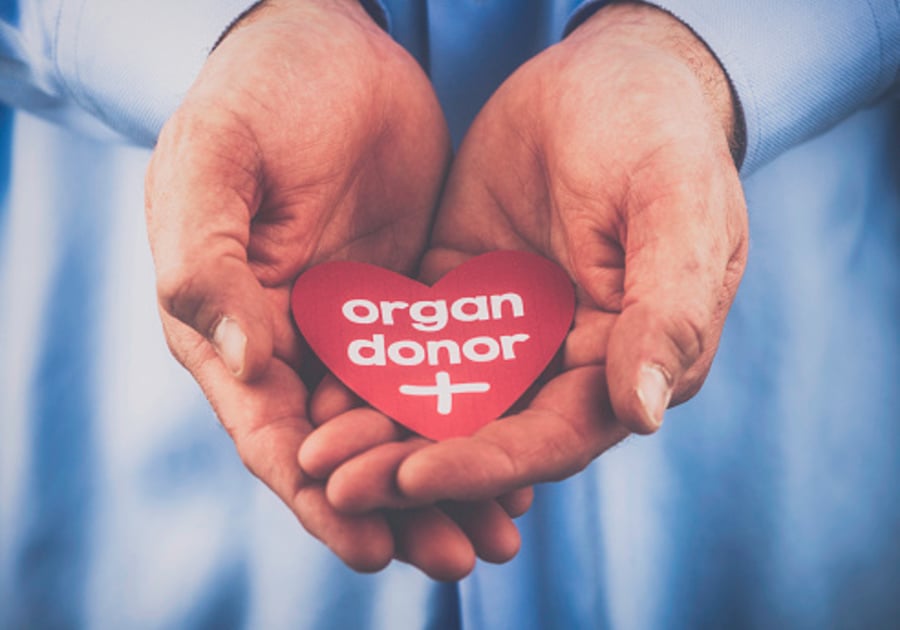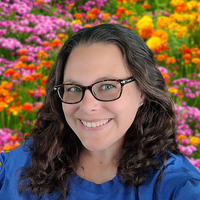February 14th isn’t only Valentine’s Day, but also National Organ Donor Day! To spread awareness for this special day, we interviewed not only one but two organ donors! The donors, Melissa Perez and Angela Jennings, kindly shared their amazing donation process and answered a few questions about their experience.
Question 1: What made you decide to donate your organ?
Melissa: I moved to VA in 2012, not because I wanted to (long story), and accepted a job I didn't really want or thought I'd EVER do. But I knew there was a reason. After a year or two working there, a coworker announced that she was very sick with cirrhosis. After watching her video I "knew" that was the reason things happened in my life that led me to move, accept the job I didn't want, find humility within that job, preparing me for something way bigger than me.
Angela: I had received a message in 2018 from a friend who had not been feeling well and had just been told he had Cirrhosis of the liver. We kind of joked around a bit as we often did, and I said “well you know I would give you some of my liver” and he laughed and said, “hold that thought I may need one in the future.” Well, in 2019 things took a turn for the worse, and he reached out to tell me that he needed to have a liver transplant promptly. I couldn’t even think about the thought of him not being around. I wanted to do everything I could to give him a second chance at life.
Question #2: Did you have any fears throughout the process? If so, how were they resolved?
Melissa: Absolutely no fear at any moment from beginning to end.
Angela: Of course, I am a wife and a mother of two boys. Here I was trying to save someone else’s life and feared I could lose my own in the process. All of those fears quickly went away, once I met with the transplant team and gained more knowledge of the testing process they do to assure I am healthy enough to donate.
Question #3: How did you feel when you got the call that you were a match?
Melissa: It took 6 month of many, many tests, even psych evaluations, for them to tell me I was the perfect match. Despite my age (they said I was too old), size (said I was too small), and they feared because I wasn't related to her or really good friends that I had ulterior motives. I didn't feel anything but confidence and excitement that the test were finally done and we can move on with saving Lily.
Angela: I was a little nervous, but I think that’s a human response to surgery, but there was also this peace I felt that this was undoubtedly what I was supposed to do.
Question #4: What was your favorite part of the organ donation process?
Melissa: My favorite part was not being at work. Just kidding. Sort of. We stayed at their [Penn Medicine’s] new donor home a few blocks away. That was wonderful. It was like a home away from home but you had neighbors all healing from donations. I was probably the only donor there at the time. Everyone else were recipients or family members. Which helped me realize how hard it can be to find a living donor. Got to meet amazing people with amazing stories
Angela: I think my favorite part of the process was actually the day after the surgery, which was at VCU in Richmond and getting to see my friend (recipient). He had a big smile on his face. We both got up and walked the halls together… slowly, but we did it. I could just see a look of relief from him.
Question #5: What do you have to say to readers who are interested in donating an organ?
Melissa: I can honestly say, to people considering donation, that it isn't as easy as I'm making it seem. It is not for the faint of heart. The younger the better but then you have to think about the mental side of it as well. Many people may become regretful or develop issues after such an invasive surgery. The donor can possibly develop issues in the long run. It's a risk taken, you have to be sure you're willing to take it. Fortunately, I didn't have any issues, other than losing a lot of blood. Causing me to be slightly anemic afterward. Gave me an excuse to eat lots of yummy steak (sorry to the vegetarians out there). My only advice is to pray about it. You'd HAVE to be 1000% sure before committing.
Angela: DO IT. It is a blessing for not only them, but you as well. What if it were you who needed a transplant? I know for myself, I would hope that someone would step up for me. It’s not easy, but it’s so worth it.
Question #6: Is there anything else you would like to share with our readers?
Melissa: Donating was a huge blessing. It not only was a blessing to the people involved but touched the hearts of many who get to hear our story. It inspires humanity to be thankful for all the blessings in their life and to treat each other better. Even if it's for a short while, it's worth it. Being a living donor I would definitely take caution in your decision but, I personally would encourage people to be a donor. Not to just save a few bucks at the DMV, but because you have no idea how many people, especially young kids and babies, we can save.
Non Living organ donors
It can be hard when thinking about what will happen to your body after you die, but you should consider becoming an organ donor. It is a generous action that could potentially save or improve up to 75 lives. It is also an act of kindness that won’t only help others, but your family and friends. Many have said knowing their loved one was helping others helped them cope.
If you’re wondering how you can become an organ donor, here is how to do so:
- Let your family know about your decision to donate.
- Sign up through your state’s organ donor registry.
- Specify that you are an organ donor when you get a new driver’s license or ID.
Need for minority organs
It is especially important for those who belong to a minority ehtnic group to consider organ donations. While organs are not matched on the basis of race or ethnicity, those of the same race/ethnicity are more likely to match one another. Many critical qualities for donor and recipient compatibility, such as blood type and tissue markers, are more likely to be the same across the same ethnicity group. If there is greater diversity in donors, access to a transplant will be increased for everyone.
Sources:
https://www.mayoclinic.org/healthy-lifestyle/consumer-health/in-depth/organ-donation/art-20047529
https://www.donors1.org/learn-about-organ-donation/who-can-donate/race-and-organ-donation/



